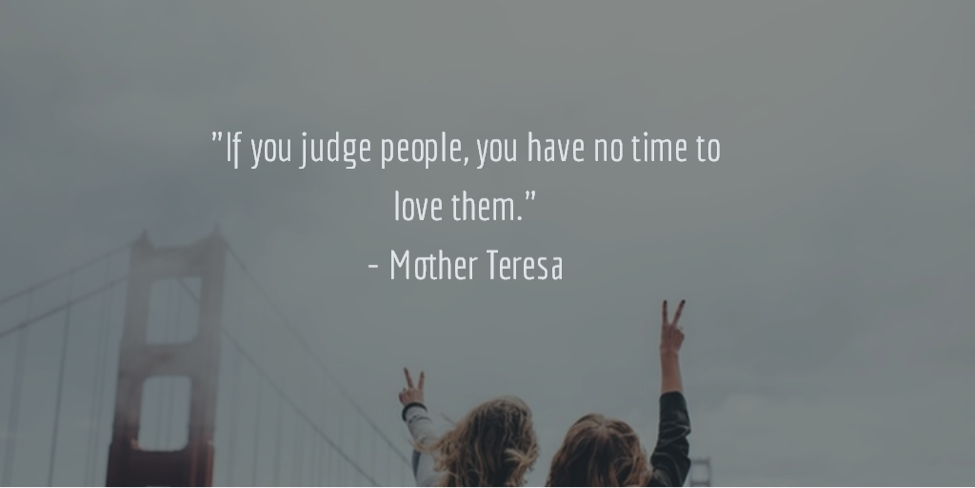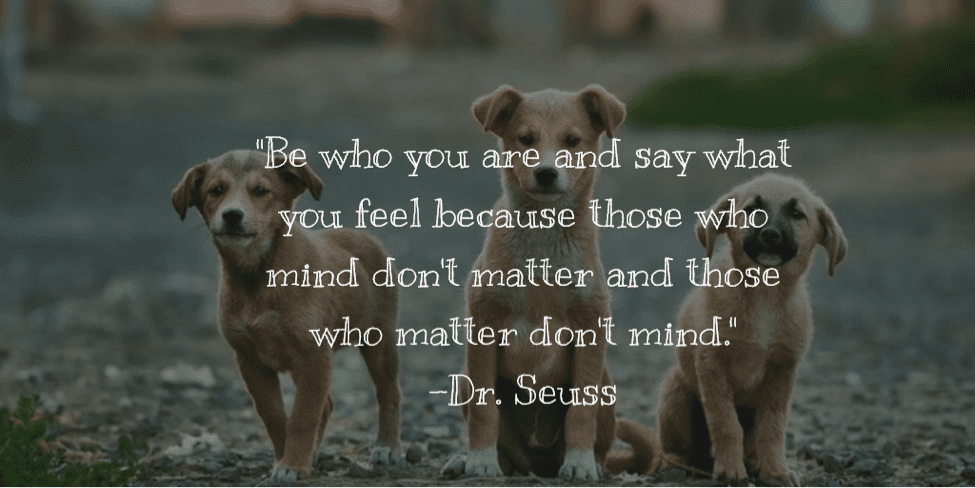The Canadian Mental Health Association (CMHA) first introduced Mental Health Week in 1951, and it has since become a yearly tradition. The official hashtag for Mental Health Week is #GETLOUD. CMHA and the Mental Health Commission of Canada asked that everyone speak up and get loud for mental health during the week of May 2-8, 2016. And of course, as you know, May is Mental Health Month in the U.S.
I asked some friends and loved ones to #GETLOUD and share their views on stigma, supporting me (as a person living with multiple mental illnesses) and to share what they have learned from reading my blogs.
I didnt do this so I could receive praise or accolades. I wanted to write this blog to 1) show people that you can function well despite and in spite of your diagnosis (es) and that people do recognize it 2) people understand you better than you think and3) you may not realize that you make a difference in other peoples lives. My ultimate goal in life is to write and share my story so I can help other people know they are not alone and to bring understanding and awareness to anxiety disorders, depression and bipolar disorder.
Here are the views of my support system:
Lets start with my Father. My Dad is a lawyer/mediator and has had clients who have had mental health issues and mediates many cases where the plaintiff has been through trauma and has a mental illness and is unable to work (because of a car accident, or perhaps was on long-term disability). This is what he had to say:
Understanding the effects of mental health issues on an individual from reading about it is certainly not the same as seeing its impact on ones child. My daughter Melanie bravely announced that she is bipolar and suffers from an anxiety disorder. She is an example of someone who can function at a high level and multitask galore. She struggles from time to time and has to put up the brave front. She has perfected her acting skills when she has those darker moments. We are proud of her accomplishments, particularly in light of her daily challenges. She is a shining example that despite suffering from a mental illness, one can succeed. When I mediate cases involving individuals who suffer from mental health afflictions following trauma I make sure to use Melanie as an example that one can overcome challenges and move forward.
On World Bipolar Day, we used the hashtag, #MoreThanADiagnosis because we wanted people to know that we are more than that, and that we can have a real life and not be confined by our illness. Yes, I do have to act at work, but the important thing is that I CAN work. I think it is important to show others that there are accepting employers out there.
The next response is from my husband, Daniel, talking about how to support a significant other.
Things change after a diagnosis, but they dont have to change for the worst. Being in a long-term relationship with someone who has a mental illness is no different than being in any relationship as all relationships involve hard work and dedication. I have learned that the best way to support a person living with a mental illness (or multiple mental illnesses) is to be kind, patient, caring and to throw some humour in the mix, because as my wifes Grandfather would always say, ‘Laughter is the best medicine’.
I will say that humour and laughter is important. Especially when you have anxiety, because something that I find really helps anxiety is distraction, and what better way to distract yourself from your anxiety than laughter?
Nicole, someone I worked with and became close friends with had this to say about friendship and being there for your friends:
True friends know when their best friend is having a bad day, or is feeling off. They dont walk away, they stand by and remind them they are loved and you are here to listen anytime. True friends dont let anyone they love and care about go through this alone. Bipolar doesnt change a true friendship.
Nicole never changed how she treated me after I told her about my diagnosis. On my wedding day, as it was nearing the ceremony and I was becoming a little big anxious, she knew what to do to calm me down. She can tell when I am off and will check in on me. That is something important for a friend to do, because people who suffer from depression, anxiety and bipolar disorder often tend to withdraw and try to isolate themselves.
Gabriel, a close friend but also someone I work with for my part-time business, talks about a misconception and strength:
If a diagnosis like bipolar disorder is supposed to slow you down and make you vulnerable then someone needs to tell Melanie because clearly she never got the memo. Melanie is an incredibly hard worker as well as a loyal and compassionate friend. If anyone is dealing with a new bipolar diagnosis they should look to this strong, intelligent young lady for guidance and inspiration.
I will say that I am a perfectionist and work harder than I should, to my own detriment where I dont take care of myself, but thats a story for another time. The point here is that someone else recognizes that fact and the fact that just because you have a mental illness, it doesnt take away your ability to work or be a good friend.
Mike, a long-time and trusted friend since my early high school days and one person who knows how to handle my anxiety best and be honest with me (even if its something I dont want to hear) said:
“I support my friend because I need them to know that whatever stigma may unfortunately exist out there, does not exist to those who mean so much to me.
He also said that,
I guess it is also about trying to separate you from the “illness”. Sometimes I get hurt by some things and can admittedly get mad or whatever. And I need to take a step back and remember it isn’t “you” doing it. I can’t hold anger towards you for it. But sometimes my feelings were hurt and I got a bit upset. I have learned not to let those things hurt me as much. Understand it isn’t “you” and wanting to be understanding an empathetic towards you and make it less about my feelings.
This brings up a good point. We all have our good days and bad days. Sometimes my response to people in text messages can seem rude or curt, when I dont mean them to be, or I am being impulsive because of the state I am in. I never mean to hurt my friends or family and I am trying to be better with my agitation and irritability and to warn people when those symptoms are rearing their ugly heads so they wont take my comments personally.
Another long-time high-school friend who plays a large role in my life, Elana discusses anxiety and what shes learned about mental illness over the past few years:
When Mel had her first panic attack I didnt realize what it really meant aside from having anxiety and I couldn’t appreciate how difficult the experience was for her. I know people say a condition doesnt change a person but for Mel, I think that it made her more aware of herself and gave her determination to not let it get the best of her. So no, it didnt change her but it motivates her. Reading her blogs and the different articles she’s forwarded to me over the last six years, has made me more aware and understanding of the struggle people with mental illness experience. It’s important that people accept that a mental illness can be just as debilitating as a physical ailment. Yes, the symptoms are different, but they are very real! I learned that just because a person appears happy, doesnt mean they are. Since her diagnosis I have become more aware of mental illness and it even has made me more sensitive to my uncle who suffers anxiety as a result of his mental illness. Mel’s determined to stop the stigma and she does her best to encourage and educate her family and loved ones about her condition and mental health in general. Just this year I supported her in World Bipolar Day, something I wasn’t truly aware of, it wasn’t for Mel. So thank you Mel!
A few things to take away from this:
1) Sharing information really does make a difference and can help your support system to better understand you.
2) Mental illness should be treated the same way as physical illness.
3) A mental illness can change you for the better- I always say that being diagnosed with bipolar disorder made me a better person because it gave me the chance to get to know myself better and I learned to be more compassionate. I admit I still struggle with self-esteem issues and there are bad days, but I dont regret receiving my diagnosis and finally receiving an answer as to what was going on with me.
Elanas brother, Jordan, has also become a good friend and wanted to say a few words:
I never really understood Mel’s day to day challenges. She hides things very well. That is one of the reasons I love reading her blog. It allows me to have a better understanding of how she feels and what she struggles with and that allows me to be a better friend. Her blog also helps me with my anxiety issues. There always seems to be something in every post that helps, like an anchor in choppy water. She has the ability to change my perspective (when thinking about mental illness) and routinely shares great stress reducing exercises I can practice at work or home. Mel continues to dismantle mental illness stigma through her work and gives all of us (who struggle or know people who struggle) tremendous hope.”
I do hide things very well, sometimes too well. Sometimes I just dont feel like sharing, but it is important that people recognize my pattern of doing this and that they read my blog posts and find out how I am feeling. I do find I can express myself better in writing. I highly recommend it journaling helps too think of it as getting those negative thoughts out of your head!
This quote also goes back to my earlier point about how you can make a difference by sharing your story. You really never know who you are helping, whether its a stranger or a friend.
I hope that anyone reading this can find some comfort, learn something new or if you have bipolar disorder, anxiety, depression (or any mental illness or are just a mental health advocate), you can show this to someone who supports you, a family member, friend, or someone you want to understand you better so they can get a sense of what we go through and how important it is to have a real, honest support system.
Thank you for taking the time to read this!



